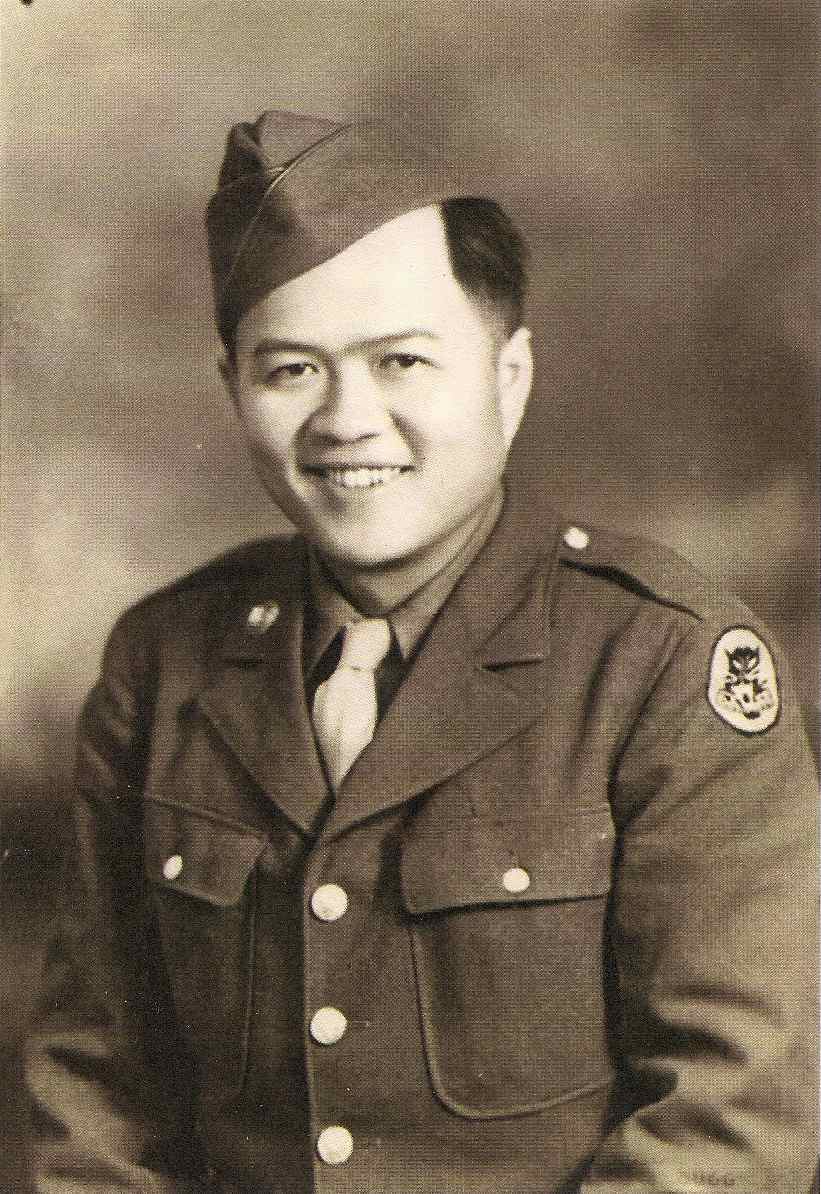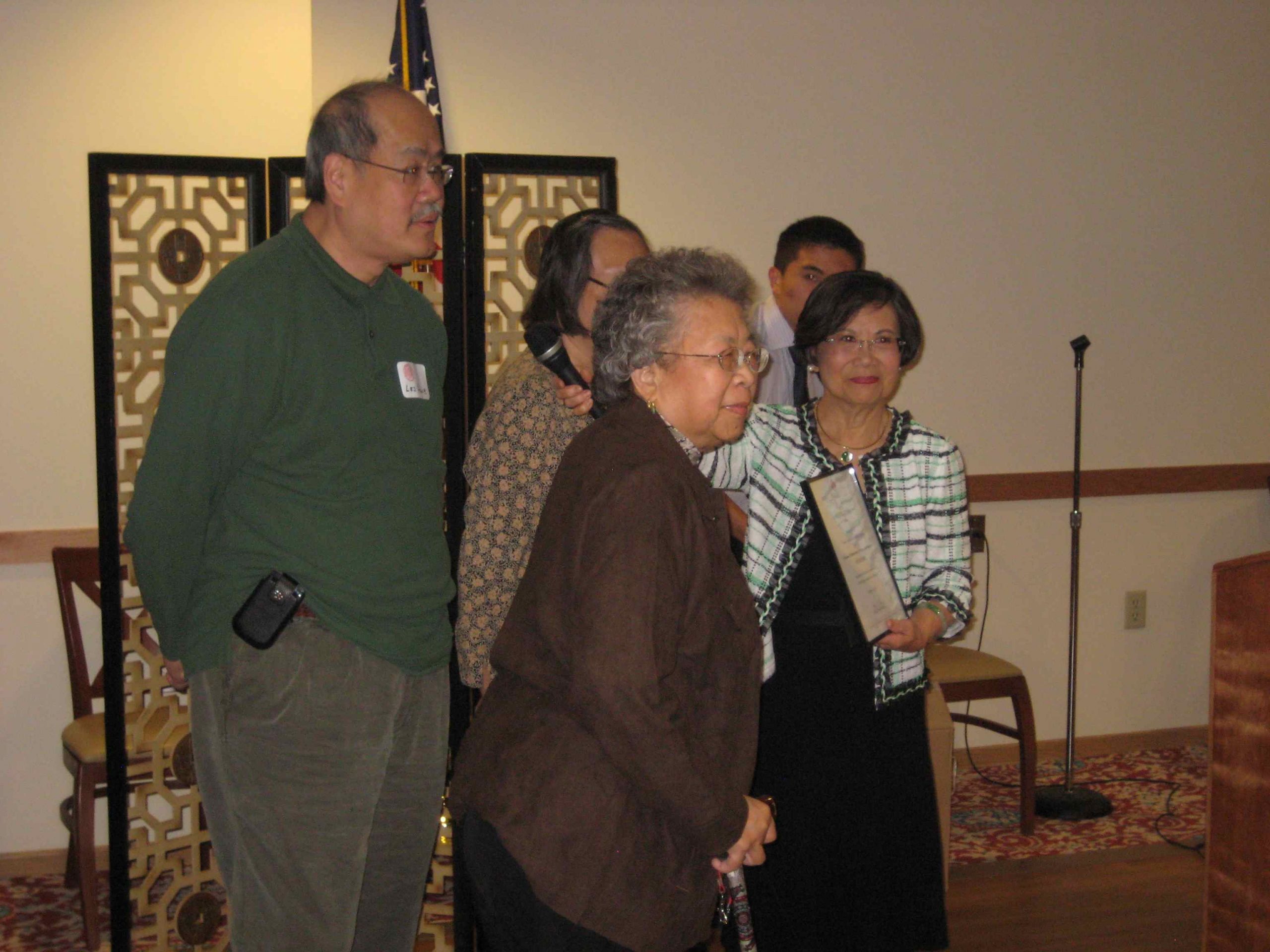Phillip Huie
An interview with Oy Huie Anderson, sister of Phillip Huie
 There were 5 of us in our family, 3 boys and 2 girls. Other than my 2 older brothers who were born in China, the rest of us were born in Minneapolis. Our father was purportedly a merchant, dealing with imports and exports in our little Chinatown in downtown Minneapolis on 3rd Ave. On Sundays other Chinese would come to Chinatown to gamble. There were four or five men who took turns hosting the gambling. My father was one of them and I suspect this was how he actually made his living. Unfortunately he died when I was about 6 years old. Things got tight after that for our family, and for a while my two oldest brothers, 23 and 28 at the time, took over hosting the gambling.
There were 5 of us in our family, 3 boys and 2 girls. Other than my 2 older brothers who were born in China, the rest of us were born in Minneapolis. Our father was purportedly a merchant, dealing with imports and exports in our little Chinatown in downtown Minneapolis on 3rd Ave. On Sundays other Chinese would come to Chinatown to gamble. There were four or five men who took turns hosting the gambling. My father was one of them and I suspect this was how he actually made his living. Unfortunately he died when I was about 6 years old. Things got tight after that for our family, and for a while my two oldest brothers, 23 and 28 at the time, took over hosting the gambling.
Pearl Harbor – I remember that it was Sunday morning and I was getting ready to go to Sunday school. The news of Japan bombing Pearl Harbor came through on the radio and it was a big surprise to all of us. It made a big impression on everyone. All we could do was stand by the radio and listen to the news. In many ways it was just like 911.
Phil – Phil was born in 1916 and grew up playing with the Hum brothers (Albert, Fred and Archie). Our father was very tall and was nicknamed ‘the northern Guy’, since Chinese from northern China were usually taller than those from the south.
Phil had attended Dunwoody Institute before he was drafted, ~1943. He was older than most of the other draftees at that time. Our oldest brother was already married with a son and therefore excused from the draft. Phil was assigned to the Philippines, right behind the front line. The Army had decided that he would be a good cook and assigned him to the kitchen, irrespective of the fact that he did not know how to cook and had never spent a day in the kitchen. He quickly learned to cook there.
I am not aware that Phil encountered any discrimination in the Army. If he did, he did not talk about it. I was the youngest one at home at the time and my mother made me write to him every week. He was glad to get my letters and would write back from time to time. He wrote about being right behind the front line, with frequent bombings and gunfire.
about it. I was the youngest one at home at the time and my mother made me write to him every week. He was glad to get my letters and would write back from time to time. He wrote about being right behind the front line, with frequent bombings and gunfire.
When the War was over Phil finished his tour of duty and came home. He took advantage of a government provision that offered veterans automatic citizenship and applied for his U.S. citizenship. His application was promptly approved and he immediately embarked on a trip to China to look for a wife, along with an older brother who was going to visit his wife and son.
Phil was among the first wave of Chinese American GIs to go back to China to look for a wife right after the War. Being older than most veterans and having lost most of his hair when he was relatively young, Phil looked much older than his actual age. His future wife, Susanne, saw him getting off the boat with his older brother and thought they were both old men.
Through enthusiastic matchmakers and friends Phil had a choice of several girls. He met Susanne and since neither could find anything objectionable about each other they got married. When they first came back they lived with my mother, sister, brother and me in our apartment on 3rd Ave. They had the back bedroom. My mother and I had one bedroom and my sister had the third one. My third brother slept in hide-a-bed in the living room while my oldest brother lived in the store downstairs.
The three younger ones of us (my brother, my sister and I) all started working when we were 12 or 13 years old. Some time during that time our oldest brothers who had taken over the so-called business decided to close it down. We gave up the apartment upstairs then and moved away.
By this time Phil and his wife had already moved out. Phil had decided not to take advantage of the GI Bill because he was older. He and Susanne worked in a laundry for a while, and then at a Chinese restaurant doing everything that needed to be done. Susanne also did piece work at home, like wrapping up fishing tackles, etc. Later on they opened a chow mein take out place. They had 3 children.
I was in high school when I started working at the Nankin Cafe. Sometimes I worked at other places, such as in an American laundry folding shirts in the summer time, or at another Chinese take out place doing ordering and cashiering. I was only 14 at the time and already working 6 days a week. Another summer I worked as a waitress at Moy CafÄ on Broadway. My sister, 4 years older than me, had started working as a waitress in a restaurant when she was only 12. My other brother was a paper carrier and then started at Nankin when he was 13, working at the steam table and as a waiter. He served in the Korean War and my sister joined the Air Force.
